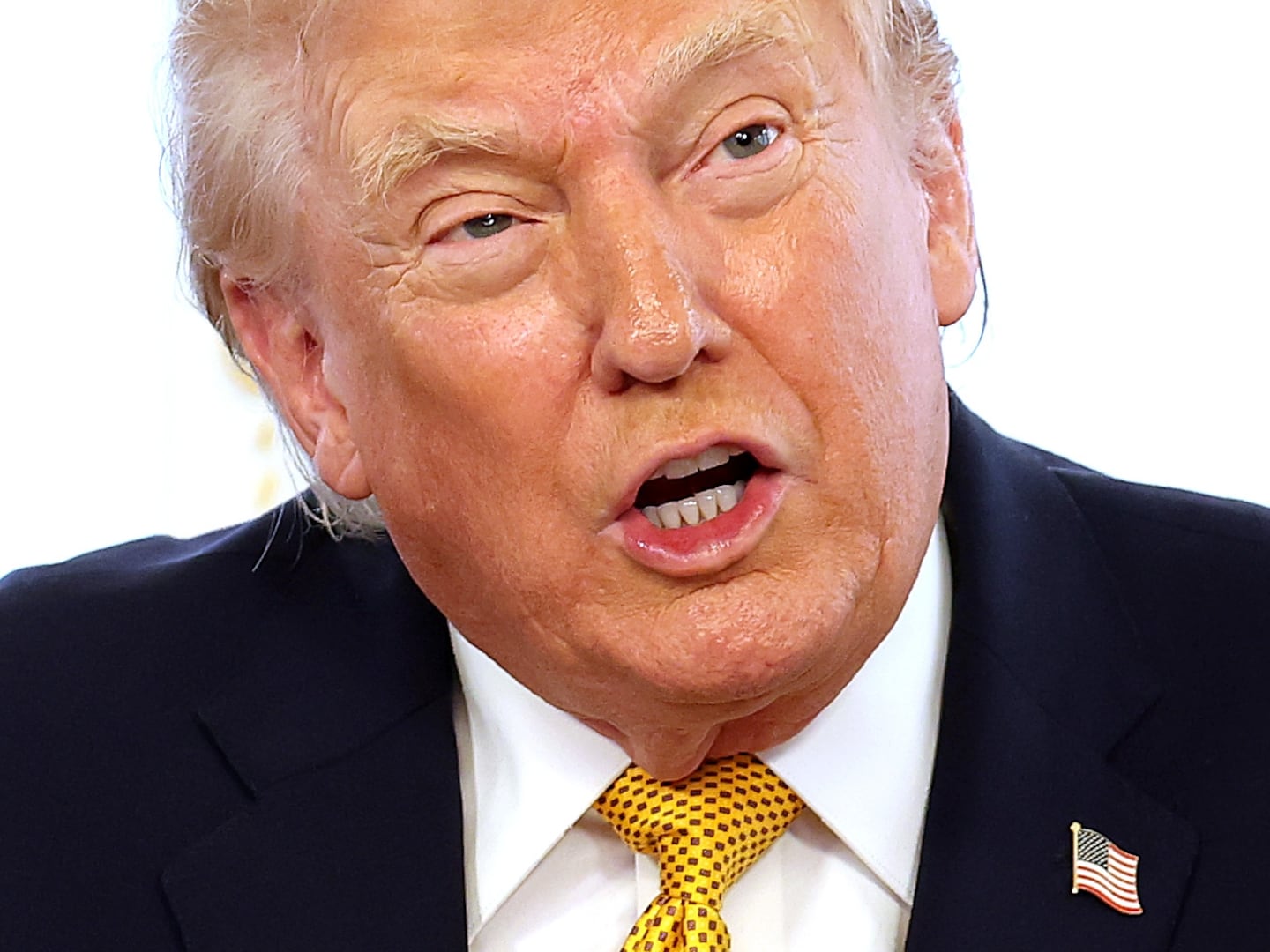
Last weekend’s Fox NFL Sunday broadcast featured an offensive animated segment making fun of Jessica Simpson’s weight. Yet again. The cartoon, which was set in the Dallas Cowboys' locker room featured several players joking about the singer in front of her ex-boyfriend, Cowboys quarterback Tony Romo. "Man, I still can’t believe Tony dated Jessica Simpson, even after she blew up bigger than Flozell Adams!" (Adams is the team’s 340-pound offensive tackle.) The segment—ironically sponsored by Burger King—was disgusting for many reasons and very damaging to the body-image epidemic that is assaulting young women in America.
I joke that some of these political Web sites should have separate sections for people to blog about the size of my ass (still a size 10, for those of you who are keeping score).
Why anyone at Burger King or Fox thought that this was acceptable is absolutely beyond me. Jessica Simpson is a multimillionaire pop star, actress, and fashion designer, and one of the most beautiful women on the planet. But because she dares to not conform to the media’s unforgiving beauty standards, none of that seems to matter. It always comes back to her weight. (Both Fox and Burger King issued public apologies to Simpson Wednesday night.)
It’s not just Jessica Simpson of course. This week, Ralph Lauren drew criticism for doctoring a photograph of a model to make her head look double the size of her pelvis. Although the company later apologized for the exaggerated Photoshopping, the size 4, 120-pound, 5-foot-10 model, Filippa Hamilton, was fired in April for being “too fat.” Elsewhere in the fashion world, Chanel’s powerhouse designer Karl Lagerfeld said that only “fat mummies” object to thin models after the German magazine Brigitte announced they would only use “realistic” women in their magazine from now on instead of professional models. By contrast, the overwhelmingly positive reaction to plus-size model Lizzie Miller’s nude photo in Glamour in August, was completely inspiring.
Here’s what I want to know: What is it going to take and how many women have to die from eating disorders until things like this Jessica Simpson cartoon and doctored Ralph Lauren ads end?
• Meghan McCain: Don’t Call Me a SlutThis is something obviously very close to my heart because I have been mocked for my weight as well. And I always hit back. My most infamous moment was telling Laura Ingraham to “kiss my fat ass” on The View a few months ago. But here is the reality—as my public profile has grown and people recognize me more and more, an unsettling anxiety has set in, something that has come as a surprise to me. Every time I am on television, give a talk, or have a picture taken, inevitably the weight comments follow. It’s a new part of my life and by far the most consistent. I have started speaking at colleges and was recently asked why the media is so obsessed with my weight. I didn’t have an answer but I did say that I could probably cure cancer and solve all the Republican Party’s problems, and people would still make fat jokes. I am strong and stay strong because I have to be. But I have seen too many of my friends suffer from eating disorders and have seen firsthand how it can quite literally ruin a young woman’s life.
Kelly Clarkson recently said that she doesn’t have a problem with her weight—the media does. I know exactly how she feels. I joke that some of these political Web sites should have separate sections for people to blog about the size of my ass (still a size 10, for those of you who are keeping score). After my recent appearance on Jay Leno, one Web site posted a comment from the editor saying, mockingly, they have a “NEW ZERO TOLERANCE POLICY for comments of a certain strain about young Meg’s physical appearance. She is an impressionable young brilliant Republican strategist!” You can imagine the kind of charming comments that followed.
My weight is the great constant in my life, no matter where I am or what I am doing it is an issue that comes up. People approach me in public sometimes to talk about their own body-image issues and commiserate about the cruel treatment I receive. Whether or not the media wants to face this, I believe some women are less likely to speak out publicly about their political beliefs because they see the way I am talked about. Why would any woman want to speak out on television when the inevitable result will be a merciless critique of her physical appearance? God forbid she is larger than a size 4 or under 5 foot 10, because then the way she feels politically is irrelevant. I worry about the long-term damage this kind of weight obsession is doing. We are grooming a generation of women who are less likely to speak out about their beliefs because of the assault that comes on their physical appearance as a result. Just look at the treatment of Sarah Palin and Hillary Clinton by the media if you need any more evidence. What exactly is the media hoping to achieve by doing this? What does anyone gain by this? The media can do better, this country can do better, if not for women like me then my little sister and all the other young girls in this country.
My only answer is to refuse to take it. I refuse to be bullied, and I refuse to let Jessica Simpson be bullied. This is the way I look, this is the way my body looks, which by the way is a completely separate issue from the way I feel politically. This country and the media are doing a horrible injustice to the young women in this country but I for one refuse to be a part of it. I also am reassured that in some small way, I hope my refusal to conform to the media’s standard of an ideal body image makes it easier for other girls out there.
Because the only heavy thing that truly matters here is the burden.
Meghan McCain is a columnist for The Daily Beast. Originally from Phoenix, she graduated from Columbia University in 2007. She is a New York Times bestselling children's author, previously wrote for Newsweek, and created the Web site mccainblogette.com.






